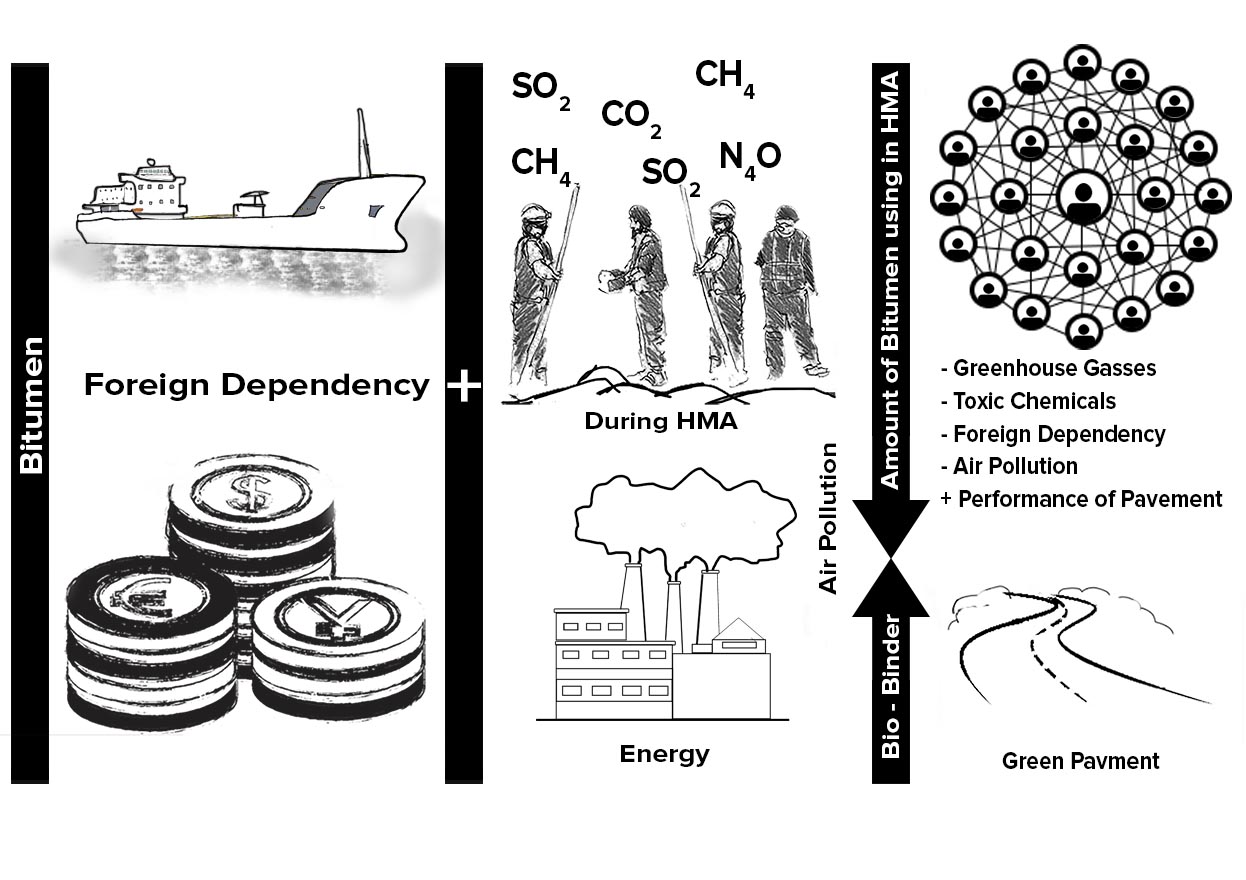The high volume of water in molasses has made this study serious. The reason is that using molasses as a partial replacement without treatment significantly affects the rheological properties of the neat bitumen and increases the likelihood of moisture susceptibility of the hot-mix asphalt (HMA) pavement structure and create fractures of aggregate particles. Therefore, to use molasses as a partial replacement without affecting the structural integrity of the pavement, this study proposed a treatment method before blending it with petroleum-based bitumen. A series of experiment was conducted to accomplish the objective of this paper, including convectional tests, Fourier transform infrared (FTIR) test, amplitude and frequency sweep test, performance grade (PG) determination test, and multiple stress creep recovery (MSCR) tests. The IR spectra show that carbonyl index decreased with increasing molasses percent. There was PG improvement from the control grade to PG64 and PG70 when the base binder modified with 5-20% molasses and aged with rollingl thin film oven (RTFO) respectively. At the temperature 58oC nonrecoverable creep compliance at 3.2 kPa (Jnr3.2kPa) was decreased for each percent replacement. This led to improving the rutting potential. As well, at a temperature of 64oC the Jnr value was decreased only for 5% replacement, and then the Jnr value was gradually increased for the remaining percent replacement. Overall, this study revealed that treated molasses can be used as a partial replacement to enhance the rheological properties of the base bitumen and thus it can potentially be used to produce a sustainable bio-asphalt binder.

